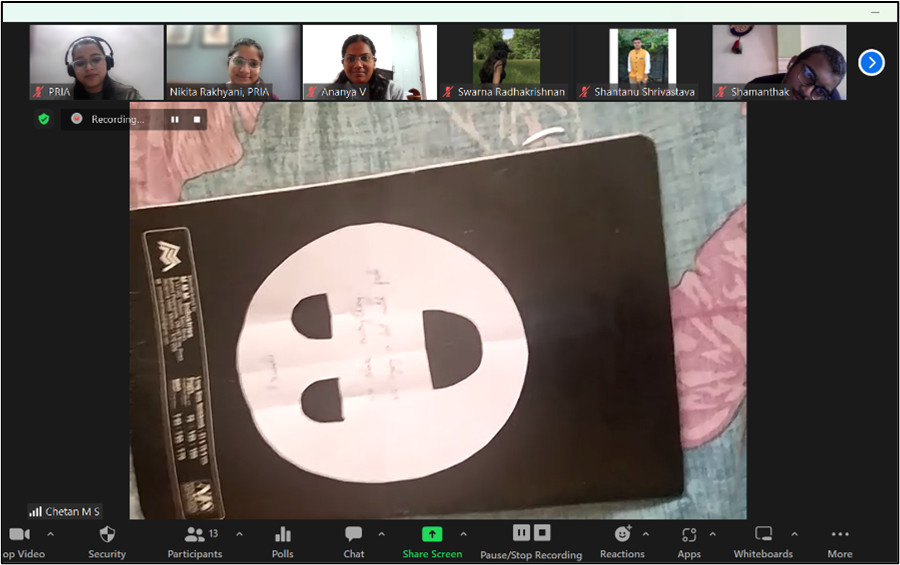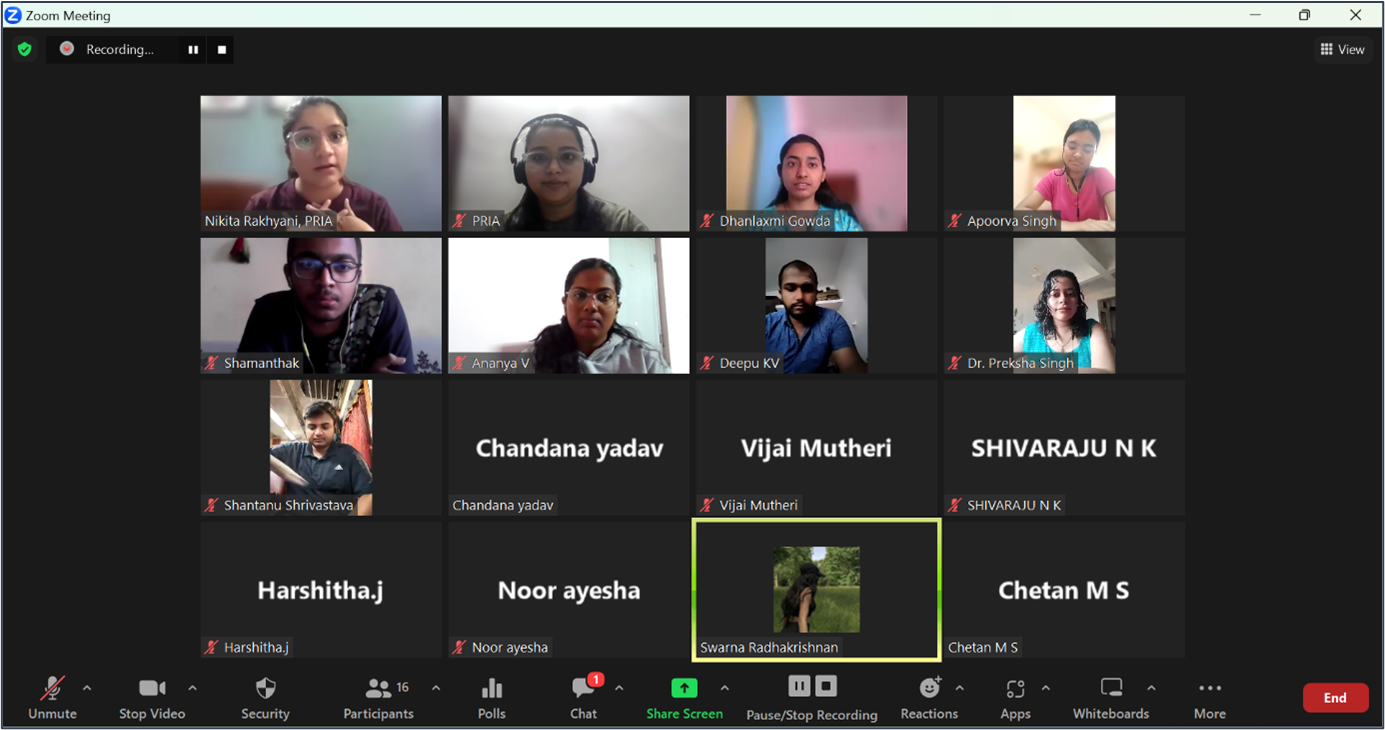In the final session of the Self module, titled "Diversity of Self," Ms. Nikita Rakhyani, Lead-Youth Engagement at PRIA (Participatory Research In Asia), conducted a session centered around Goffman's theory of Self. The aim was to help fellows explore the different facets of themselves when they interact with different people.
The session commenced with a review of previous discussions, leading to a reflection on how the fellows presented themselves when they first met and how that has evolved over time.
Some fellows claimed to maintain consistency in their behaviour with everyone, while others admitted to initially being reserved but gradually opening up during the fellowship. Another fellow pointed out that her interactions with different individuals varied because it is practically impossible for them to be the same with everyone. When asked about the reason for the diversity in our behaviours with different people, it was pointed out that our interactions are influenced by our assumptions of how others expect us to behave. This led the facilitator to pose the thought-provoking question, “Are we always wearing a mask?”
To explore the nuances of our interactions and behaviours with different people, fellows were then asked to create three metaphorical masks: one for interactions with family/parents, one for close friends, and one for professional relationships. Each mask was divided into two parts, representing what remains consistent and what changes in behaviour across the various roles. A discussion on their masks and the different aspects of their personalities ensued.

A fellow humorously noted the lack of congruence in his interactions with the three groups and expressed, “I should get the Dadasaheb Phalke Award”. Others shared that they are very sophisticated during professional interactions, but with friends, they let loose and become happy and cheerful. One fellow, representing her mask for interactions with friends, drew a dog, indicating that she has no filter when with them. For interactions with family, she drew clouds, symbolising that she doesn't share everything with them, only telling them what makes them happy. Her mask for professional relationships was a regular mask covering her face completely, suggesting she doesn't reveal everything to her colleagues either. Many others also expressed the diversity of their selves while interacting with different people through their creative masks.
The facilitator took this opportunity to introduce the fellows to Erving Goffman, a sociologist who, in his book “The Presentation of Self in Everyday Life,” drew parallels between social interactions and theatrical performances. Goffman suggested that the self is not stable but keeps changing according to the situation, environment, and the audience. Humans continuously assume roles, sometimes putting on an act to present themselves as others expect us to be.
In smaller groups, the fellows engaged in a discussion to understand how they perceived each other during their initial meeting and whether they were successful in portraying themselves as they intended to. People shared their first impressions, and some acknowledged instances where people's impression of them diverged from their intended behaviour.
The facilitator discussed how we are all actors who use props to perform certain roles, like wearing certain attire for interviews, and how this influences their performance on the “front stage,” which is where we present ourselves. Meanwhile, the “backstage” refers to the preparation and self-reflection that occurs before presenting oneself.
The question arose: If people are constantly acting, how do we find out what their true nature is? Goffman suggested that to know someone's true self, we should observe and catch certain cues, reflecting upon their behaviours to see if people are as they appear to be.
Ultimately, the goal of the session was to highlight that the self is a collection of many roles, which might be very divergent from each other, and it is essential to accept that but also ensure that those roles do not overpower our true self.
